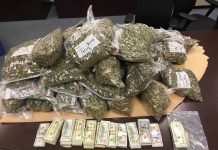This article is written by Abhinav Anand, a student pursuing B.A.LL.B(Hons.) from DSNLU, Visakhapatnam. This article deals with the need to decriminalise narcotics. It also examines the position in different countries. It also examines different regulations pertaining to narcotics and suggests changes in them.
Table of Contents
Introduction
In the recent past, we have seen technological developments at its peak. Society has grown immensely on every front. The innovative uses of different kinds of substances have led to the development of new solutions for existing problems. The constructive use of narcotics has also shown some useful changes in society. This article deals with why there is a need to decriminalise narcotics. It further examines the position of the countries where narcotics are decriminalised or the regulation is comparatively less strict.
Pros and cons of decriminalising narcotics
Pros of decriminalising the drug
-
Reduction in the drug trade
The very fact that the trade of drugs is completely banned in the country makes it unavailable to the public at large. The drug dealers used it as a loophole and charged high prices for the drugs. The drug business has grown immensely and the drug dealers have made an illegal profit from this business. Decriminalisation of the drug will reduce the black marketing and the drugs will be available to the common people at reasonable prices.
-
Effect on the public at large
The decriminalisation of narcotics will have a purposive impact on the public at large. The reports of different studies have suggested that the places having less stricter laws have low consumption of the drugs. In the Netherlands, the laws on drug consumption are less strict than other countries like the United States of America and the data shows the consumption of drugs in the Netherlands is less. The Connecticut Law Review Commission has examined the laws of the state that have reduced the penalties on the use of the drugs; these are the following outcomes.
- The cost of arresting and prosecuting reduced in the state after removing the stricter penalty on keeping a small quantity of the drug.
- There was a sharp rise in cases in the state that has kept the stricter laws in keeping the drugs.
- The relaxation in the laws does not show any steep rise in the consumption of allied products such as alcohol or other drugs.
-
Help its study
Due to the non-availability in the market, it has reduced the scope of detailed research and credible information for its constructive use. The illegal supply has increased and also it has led to numerous wrong information about the use of drugs. So, it causes prejudice to the genuine user of these substances.
-
Medical uses of the drugs
Many drugs have numerous medicinal usages. They help in curing different kinds of diseases.
- Glaucoma
- Prevents cancer from spreading to other parts of the body
- Reduces anxiety
- Improve metabolism
- Said to spur creativity in the brain
-
Lesser abuse
The legalisation of drugs will lead to lesser abuse. The legalisation will attract government scrutiny which will look into the quality of drugs in the market. The quality of drugs will improve and it will help to curb the infiltration of adulterated drugs in the market.
Cons of decriminalising the drugs
-
Tried and failed attempts
The existing issue of decriminalizing narcotics has been in discussion for a long time. The politicians and other concerned people have discussed the issue of legalising the narcotics exhaustively. After elaborate discussions on the decriminalisation of drugs, the politicians and people from the different institutions of society concluded that, if its criminalisation has not yielded coveted results, it would not be a cogent argument to decriminalise the use of drugs. Further, it is also contended that the people in the society are treating this as an experiment element so that one can change things immediately to check its long term result.
-
The reason behind these laws
The reason behind criminalising the consumption of drugs has been a bad impact on the health of the people. The youngster has become one of the easy targets of the consumption of drugs. The laws are made stringent to protect the harm caused by the consumption of the drugs. The drugs that have been widely circulated in the market have taken the lives of many people. The country is already fighting with many problems and in these trying times, the lenient laws on drug consumption add insult to the injury. If the stringent laws will not be there then it will lead to a serious crisis.
-
Overburdening society
After the legalisation of the drugs, there are higher chances of the youth getting into this habit regularly. It will not only hamper their development but also will harm society. The crime rate may increase as the people will commit crime after running out of money for the drugs. The families will lose their happiness. The children will lose their education and the grandparents will lose their hope. It will lead to a chaotic situation wherein there is a loss on every front and it will be tough for any machinery to pacify the situation and set back to its original position.
Relevant Laws for the Drug Regulation
Narcotics and Psychotropic Substances Act, 1985
India is a signatory to the United Conventions on the narcotics substance in 1961 and also in 1971 on psychotropic substances. The domestic laws came into effect after 1980 when the grace period given for abolishing cannabis for its non-medical ended. The legislation was implemented with the objective to punish drug trafficking, illicit use of the drugs and also attain the objective of the International Conventions.
The act prohibits the trade, export, import, consumption and trafficking of narcotics and psychotropic substances except for medical and scientific purposes according to the procedure established by law. There are three types of drugs categorically classified under the act:
- Narcotics substances- The substances that are covered under the 1961 convention.
- Psychotropic substances- The substances that are considered under the 1971 convention and it also cover the psychoactive substances such as ketamine which are not yet covered under any convention.
- Controlled substances- The substances that are used to prepare medicines and for other scientific purposes.
The Act also laid down procedures for the search, seizure and arrest of the person in public and private places. The act empowers the state and central government wherein they are allowed to make laws under “ medical and scientific purpose” so that any liability cannot be attracted with the provisions of this act. The term medical and scientific is not defined anywhere. So, it has left a loophole and it is widely misused. Some activities are exclusively allowed for the government but some are also allowed for the private entities.
In 1988, the act was supplemented with the Prevention of Illicit Traffic of Narcotics and psychotropic substances act provided for the preventive detention of the people who are involved in the drug trafficking activities.
NDPS Amendment Act, 1989
This was one of the significant amendments in the act. The slogan “ tough on Drugs” was given that time. The provisions were made stringent. The imprisonment was increased up to 10 years and the bail provisions were removed, bar and suspension of the commutation of sentences, the offences shall be tried by the special courts, death sentences for the repeat offenders. The consequences of this amendment were severe as the people in possession of even small quantities of the drug had to go for long imprisonment. With no possibility of bail under the act, people have to languish in jail for many years. This amendment was vehemently criticized.
NDPS Amendment Act, 2001
On the huge outcry for the reform, the act was amended in 2001. The basis of awarding was changed. Now, the possession was calculated under three categories- small, commercial and intermediate. On this basis of the quantity of drugs possessed, the quantum of punishment was awarded.
NDPS Amendment Act, 2014
The NDPS Act was amended for the third time to make it more inclusive and constructive for the existing time:
- Creation of a new category of narcotics drugs which the central government can specify and regulate it.
- Widening the objective of the law from containing the illicit use of drugs and also promoting the use of drugs for medical and scientific purposes and in keeping the balance between the control and availability of the narcotics drugs that underpin the objectives of the international treaties.
- Making a death penalty discretionary for a subsequent offence involving small quantity of drugs under section 31 A. the court will have the alternative to impose life imprisonment of 30 years.
- Enhanced punishment for the small quantity of the drugs from 6 months to 1 year.
- Allowing private sector investment in opium and poppy straw.
- Raising the rank of officers authorised to conduct the search and seizure of the alleged NDPS Act.
- More elaborate provisions for forfeiture of property of the person arraigned of the charges under the act.
Death Penalty
The harshness of the NDPS Act is demonstrated by the inclusion of the death penalty in certain kind of offence such as possession, production, import, transportation and export. The act became more stringent after the 1989 amendment. After the amendment in 2001, the death penalty punishment is narrowed. The instances when two-person were convicted and awarded death penalty for possessing charas has led the provision for its constitutional validity.
Internationally drug offences are not considered as “most serious crime” for which death penalty can be imposed. The Indian Legislature recognise the drug offences as heinous than murder because the former affects the individual but the latter has a deleterious impact on the society.
Treatment of Drug Dependence
The NDPS Act supports the treatment of the drugs who use drugs both as an alternative and independent of criminal measures. There are provisions in the act that provides for the treatment of the drug addicts.
National Fund
A National Fund for the Control of Drug Abuse was established in 1989. The fund can receive contributions from the central government, individual donors and by the sale of property confiscated from drug trafficking. Awareness campaigns are done regularly. People are asked to quit drugs by referring to the impact on their body.
Treatment Centre
- Governmental hospital
- NGO
- Psychiatric Hospitals or Nursing Homes
- Private de-addiction centres
Drug and Cosmetics Act, 1940
These are the following objective behind this act:
- To regulate the import, manufacture, distribution and sale of drugs and cosmetics through licensing.
- Manufacture, distribution and sale of drugs and cosmetics by qualified persons only.
- To prevent substandard in drugs, presumably to maintain the quality and high standard in the drugs.
- To regulate the sale and manufacture of ayurvedic, Siddha and Unani drugs.
- To establish a Drug Technical Advisory Board and Drug Consultative Committee for allopathic and allied drugs and cosmetics.
These are the following salient features of the act:
- Maximum penalty life imprisonment and a fine of 10 lakh or 3 times the amount of good that is confiscated, whichever is more.
- Besides the officers of the drug controller office, other gazetted officers are also allowed to prosecute under this act.
- Some of the offences are cognizable and non-bailable.
- Specially designated courts for trial of the offences under the act.
- Provision for the compounding of the minor offences.
Conclusion
The time has come for the inclusion of narcotics in a balanced manner in the society and its judicious utilisation should be promoted. To cope up with the rising problem of youth getting infected from the perils of using drugs, we need a robust enforceability factor on the ground level. We have sufficient regulatory measures but its implementation has not been done adequately. For the holistic development of the country,it’s important that how our youth is growing, and drugs act as a negative catalyst in their growth. We need robust campaigning against drug use. We should make aware people regarding how it has ill effects not only on the body but also on society.
LawSikho has created a telegram group for exchanging legal knowledge, referrals and various opportunities. You can click on this link and join:
 Serato DJ Crack 2025Serato DJ PRO Crack
Serato DJ Crack 2025Serato DJ PRO Crack











 Allow notifications
Allow notifications


